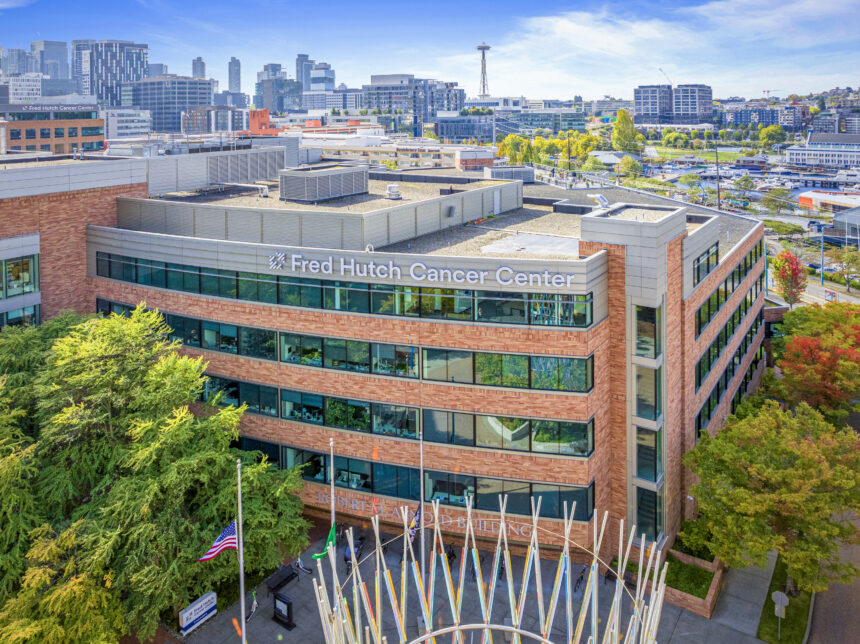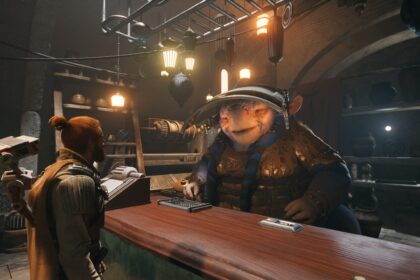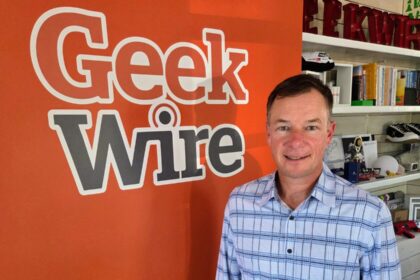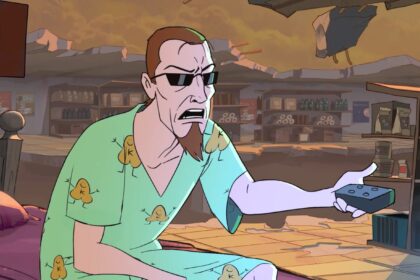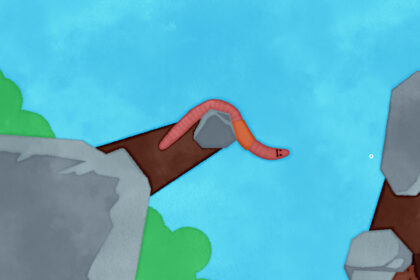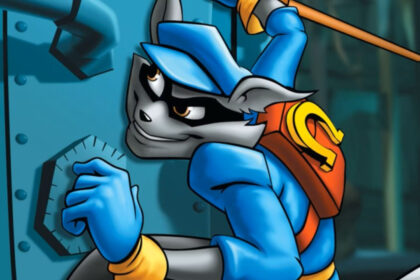Fred Hutchinson Cancer Center — an organization responsible for discoveries that have fundamentally transformed cancer treatment and helped to establish the Seattle area as a biotech hub — is celebrating its founding 50 years ago this month.
Dr. Fred Appelbaum has been there since nearly day one.
Appelbaum, a Fred Hutch oncologist and executive vice president, recalls the early, scrappier days of the nonprofit as it was trying to turn Dr. Donnall Thomas’ bold ideas about bone marrow transplants into viable treatments. The effort ultimately worked and Fred Hutch is now a 6,000-employee institution that draws on its origins to inspire the next generation of ambitious cancer research.
“That history of success tells us that we did it before, and we should be able to do it again,” Appelbaum told GeekWire. “That’s embedded in the personality of the Hutch.”
The organization’s discoveries have led to 50 spinoff companies including Juno Therapeutics, Adaptive Biotechnologies and Affini-T Therapeutics.
“The Fred Hutchinson Cancer Center is a storied research institution that has been key to the progress for patients with cancer,” said Dr. Norman Sharpless, a past director of the National Cancer Institute and former acting commissioner of the U.S. Food and Drug Administration, via email.
Added Dr. Robert Vonderheide, director of the Abramson Cancer Center at Penn Medicine, regarding Fred Hutch: “Its reputation and impact are so well-known and cherished that everyone in our field simply says ‘The Hutch.’ We know what that means: Nobel-winning discovery and innovation, and science and treatments that make a difference for patients with cancer.”
But even as past accomplishments and recent breakthroughs are driving momentum, Fred Hutch faces daunting new challenges. The Trump administration is working to slash research dollars in an effort to boost government efficiency. Federal leaders have canceled grants and want to cap overhead funding that pays for utilities, rent and other so-called indirect costs.
Fred Hutch president and director Dr. Tom Lynch warned earlier this year that the administration’s cuts to overhead support “would have a chilling, dramatic, horrific effect on our ability to do research.”
Appelbaum struck a tone of resiliency this month, noting that Fred Hutch has survived three recessions and significant funding cuts — and the founding years themselves were a test of the researchers’ mettle.
Brought back from ‘the jaws of death’
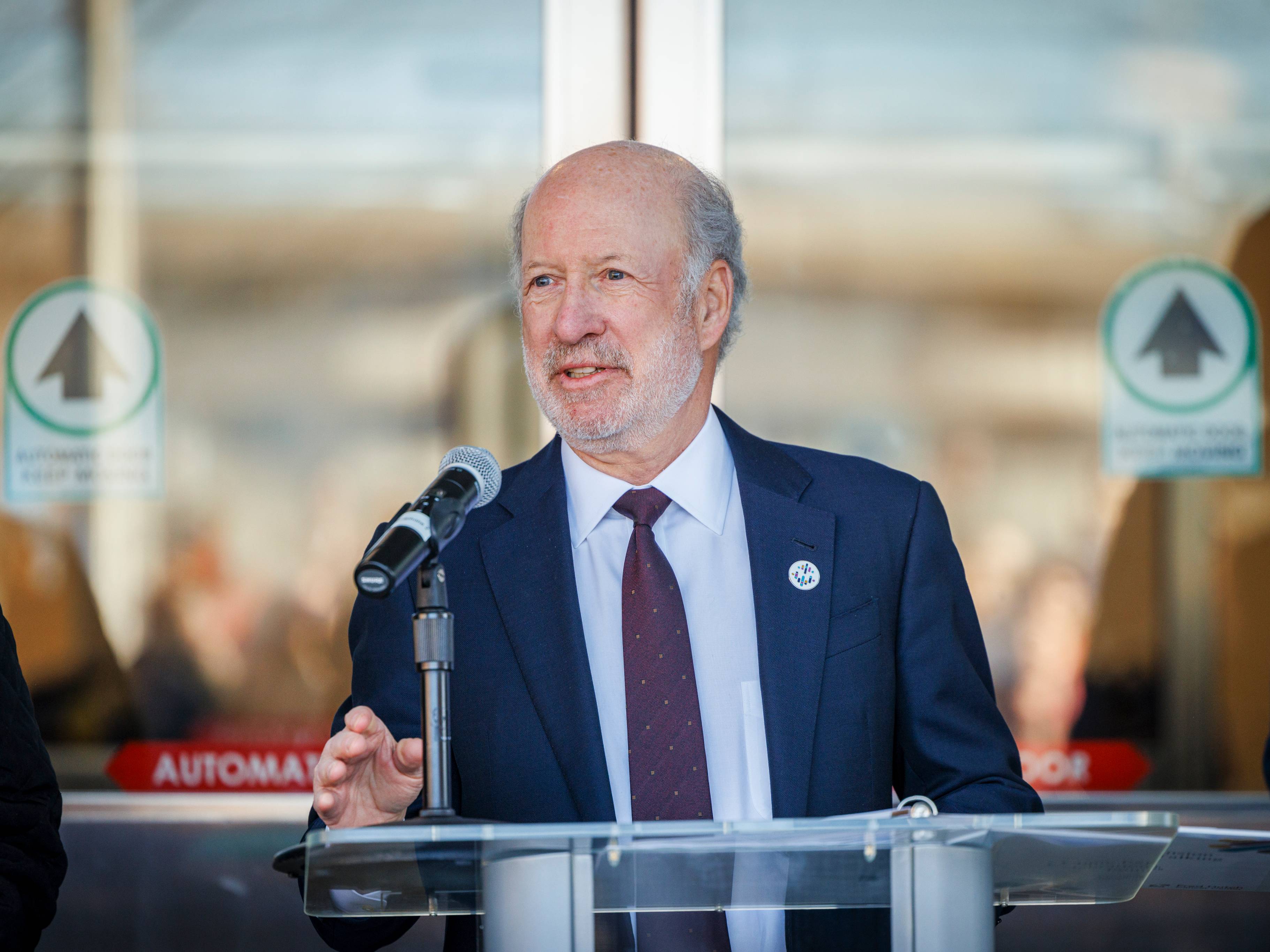
In 1990, Thomas won a Nobel Prize for his pioneering work on bone marrow transplants, but the initial experiments were often harrowing for the doctors, nurses and leukemia patients alike. Only very sick patients with limited alternatives enrolled in the studies, which included radiation treatments delivered in underground bunkers from World War II. Cure rates were around 15%, Appelbaum previously recounted.
“[T]ime and again you’d have patients come in with hopes that they could be saved, and their family hoped that they could be saved, and unfortunately the toxicity of the transplant caused them to die or the disease came back,” he said in a 2015 interview.
But as the therapy was fine-tuned, outcomes improved and the patients beat their cancer.
“That was incredibly exhilarating,” Appelbaum said. “They’d been brought back literally from the jaws of death.”
From there, the researchers made additional discoveries, realizing that bone marrow transplants could treat certain genetic ailments, such as sickle cell disease. Fred Hutch studies helped spur CAR-T cell treatments by demonstrating the ability to genetically manipulate immune cells and create receptors that recognize malignant cancers.
“This whole revolution in gene therapy,” said Appelbaum, was derived from Thomas’ initial observations in marrow transplantation.
Over the decades, the center has gone from treating a 100 patients annually to serving 50,000 patients this year for wide-ranging cancers.
Fred Hutch scientists and clinicians have made essential discoveries “in diverse topics from tumor immunology to cancer virology to bone marrow transplantation,” said Sharpless, who is now professor of Cancer Policy and Innovation at the University of North Carolina School of Medicine.
“It would not be an exaggeration,” he added, “to say that many thousands of people who were once diagnosed with cancer are alive today because of critical discoveries at the FHCC.”
Evolving approach to research
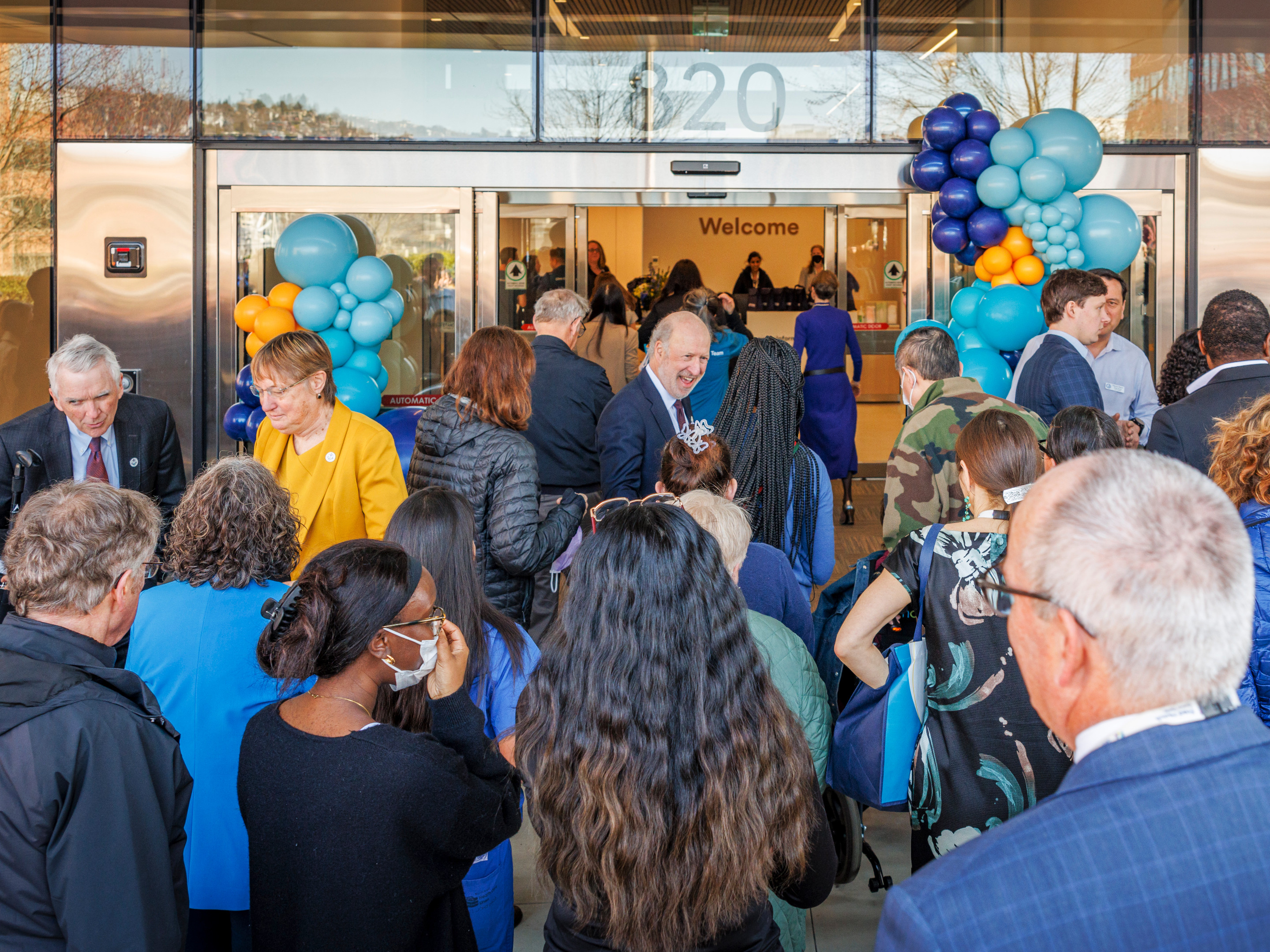
As cancer care has evolved the nature of the work has likewise progressed, Appelbaum said. That includes a variety of changes:
- The past was notable for serendipitous breakthroughs that opened new fields. Today’s science follows a more methodical path of incremental advances that build logically upon each other.
- Tech-facilitated collaborations and data sharing across institutions are more rapidly unlocking discoveries.
- Advances in lab technology and computing allow researchers to “interrogate” complex cellular interactions to understand the mechanics of cancer.
- Research requires more costly infrastructure that is typically limited to large institutions, but advances have made many operations much cheaper, such as sequencing DNA or producing therapeutic antibodies.
With these gains, is the moonshot of curing cancer getting closer?
“We are curing lots of cancers.” Appelbaum said, while acknowledging that some, such as pancreatic cancer and glioblastomas, remain difficult to treat.
“But that doesn’t mean that they are insurmountable,” he said. When it comes to those diseases, he added, “I firmly believe that we will, over the next decade, continue to unravel all the reasons why our current therapies, which should work, don’t work.”
‘That’s how we’ll cure cancer’
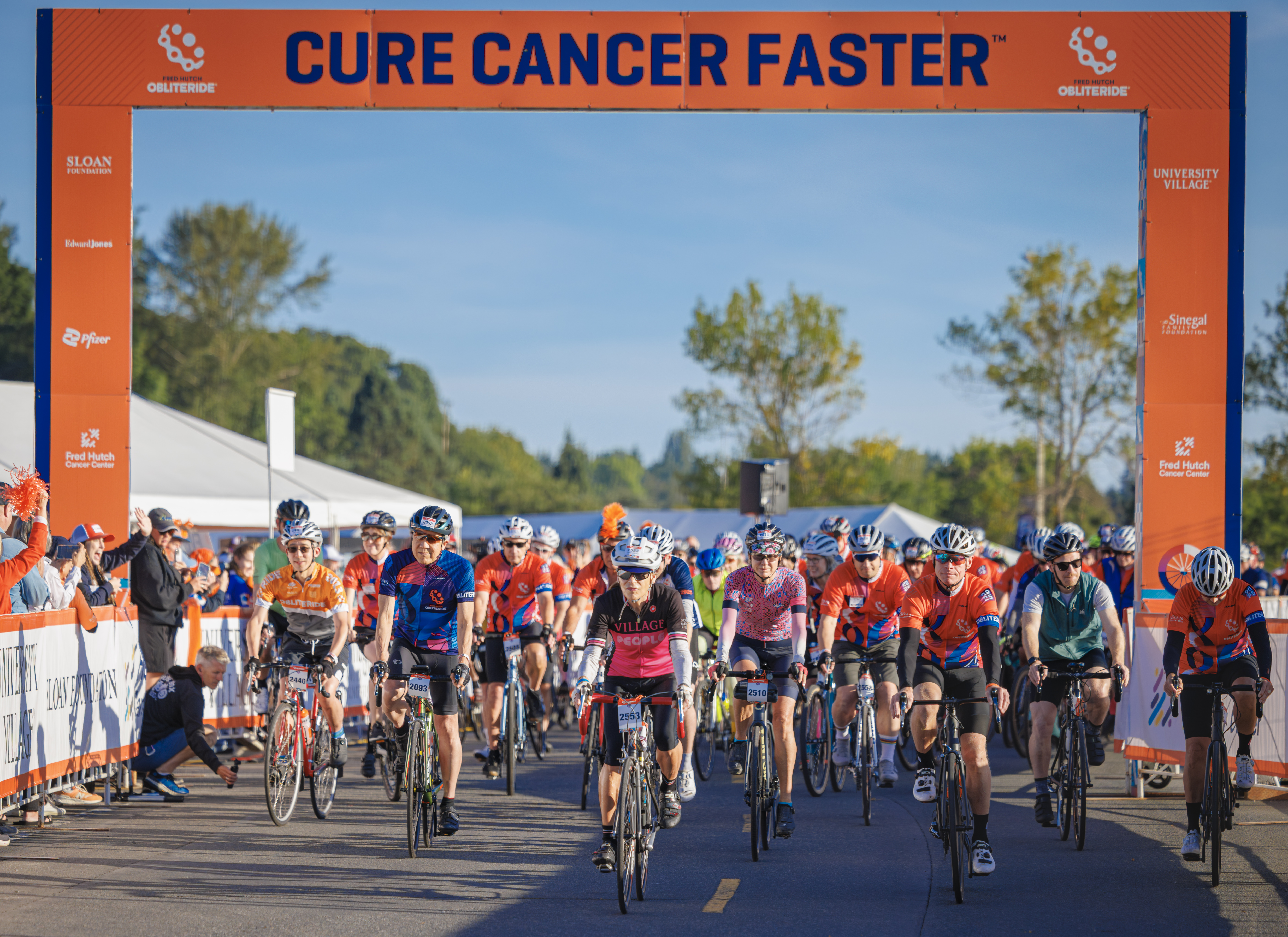
The question now is how the work will be funded. Fred Hutch received $305 million of National Institutes of Health funding last year — second only to the University of Washington among NIH recipients in the state.
But the Trump administration has proposed capping indirect cost payments at 15%, far below Fred Hutch’s current 76% rate. That change would wipe out roughly $125 million in annual support for the center, whose operating budget was $2.1 billion last year.
Appelbaum acknowledged that U.S. research institutions could make fiscal improvements, but the nonprofit is worried. While the cuts are being fought in court and Congress is still weighing in, impacts are already being felt.
Hiring is being delayed and the organization is investing time and energy exploring different potential outcomes, Appelbaum said. The center has made layoffs, but declined to confirm how many.
“We’re very, very, very concerned, but we don’t know right now what is going to happen,” he added.
Fred Hutch also has support from philanthropic giving, which includes $710 million from Amazon founder Jeff Bezos and his family that’s being issued over a decade, and a gift from Stuart and Molly Sloan, owners of University Village, that was recently increased to $100 million.
Despite funding uncertainties, Appelbaum still can imagine how cancer care hits its moonshot. He envisions people coming in for their annual physical, having a painless blood sample taken, and providers looking for any hints of cancer.
If something is detected, “we’ll remove that early tumor, and we’ll vaccinate you,” he said. “The tumor will never come back. That’s how we’ll cure cancer.”
Read the full article here



